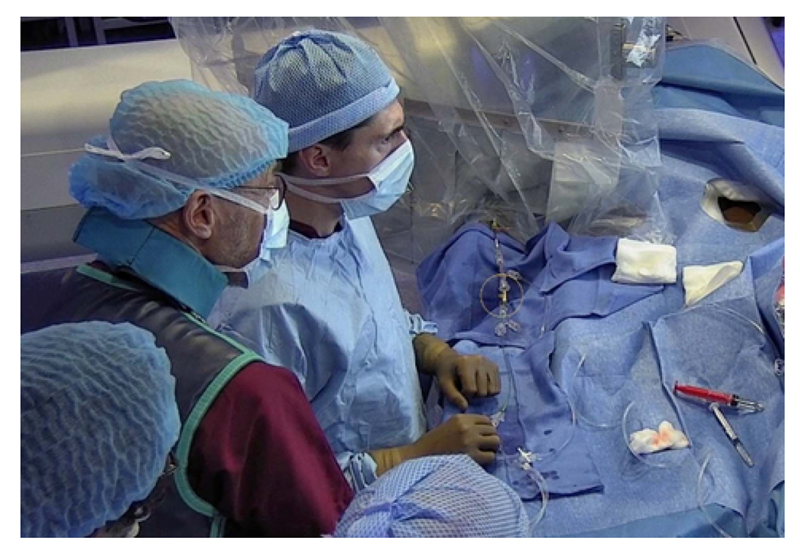First Patient Enrolled in Study to Evaluate Device for Treating Bifurcation Aneurysms
 Evasc Neurovascular announced the enrollment of the first patient in its French eCLIPs Safety, Feasibility and Efficacy Study (EESIS-FR). The study will be conducted in France with the objective to evaluate the technical feasibility, safety, and efficacy of the eCLIPs products for the treatment of bifurcation aneurysms. The eCLIPs device has been granted ‘innovative’ status in the French Forfait Innovation program and the study is partially funded by the French National Authority for Health (HAS) within this program. Up to 28 neuro-interventional sites in France will enroll patients in this study.
Evasc Neurovascular announced the enrollment of the first patient in its French eCLIPs Safety, Feasibility and Efficacy Study (EESIS-FR). The study will be conducted in France with the objective to evaluate the technical feasibility, safety, and efficacy of the eCLIPs products for the treatment of bifurcation aneurysms. The eCLIPs device has been granted ‘innovative’ status in the French Forfait Innovation program and the study is partially funded by the French National Authority for Health (HAS) within this program. Up to 28 neuro-interventional sites in France will enroll patients in this study.
The procedural success of the second generation eCLIPs Bifurcation Remodelling System will be evaluated to determine its feasibility and safety will be measured as of a major stroke or death within 30 days, or major territorial stroke or neurological death within one year. Additional endpoints will be evaluated, and data collected to assess the procedural success and to collect efficacy information on the other eCLIPs products.
“I am pleased to have enrolled the first patient in this important clinical study to help further the clinical understanding of the real-world effectiveness of the second generation eCLIPs Aneurysm Treatment System. We have seen an enormous improvement in the second generation eCLIPs delivery system: stability and placement within eight minutes is a game-changer in the neurointerventional practise,” said Dr. Raphael Blanc, Principal Investigator of the study and Consultant Interventional Neuroradiologist and Deputy Head of the Department of Interventional Neuroradiology at Rothschild Foundation Hospital, Paris, France.
“Thanks to our French partners, we have achieved this significant milestone after many years of hard work,” said Dr. Donald Ricci, President and Chief Executive Officer of Evasc Neurovascular.
eCLIPs is a non-tubular endovascular device currently targeted for use in challenging wide-neck bifurcations, using technology designed to treat 95% of cerebral aneurysm cases. The unique eCLIPs design provides not only coil retention, but also flow diversion at the neck. eCLIPs avoids dangerous entry into the dynamic, fragile environment of the aneurysm sac while leaving side branches unencumbered and providing a platform for endothelial growth across the bifurcation neck.